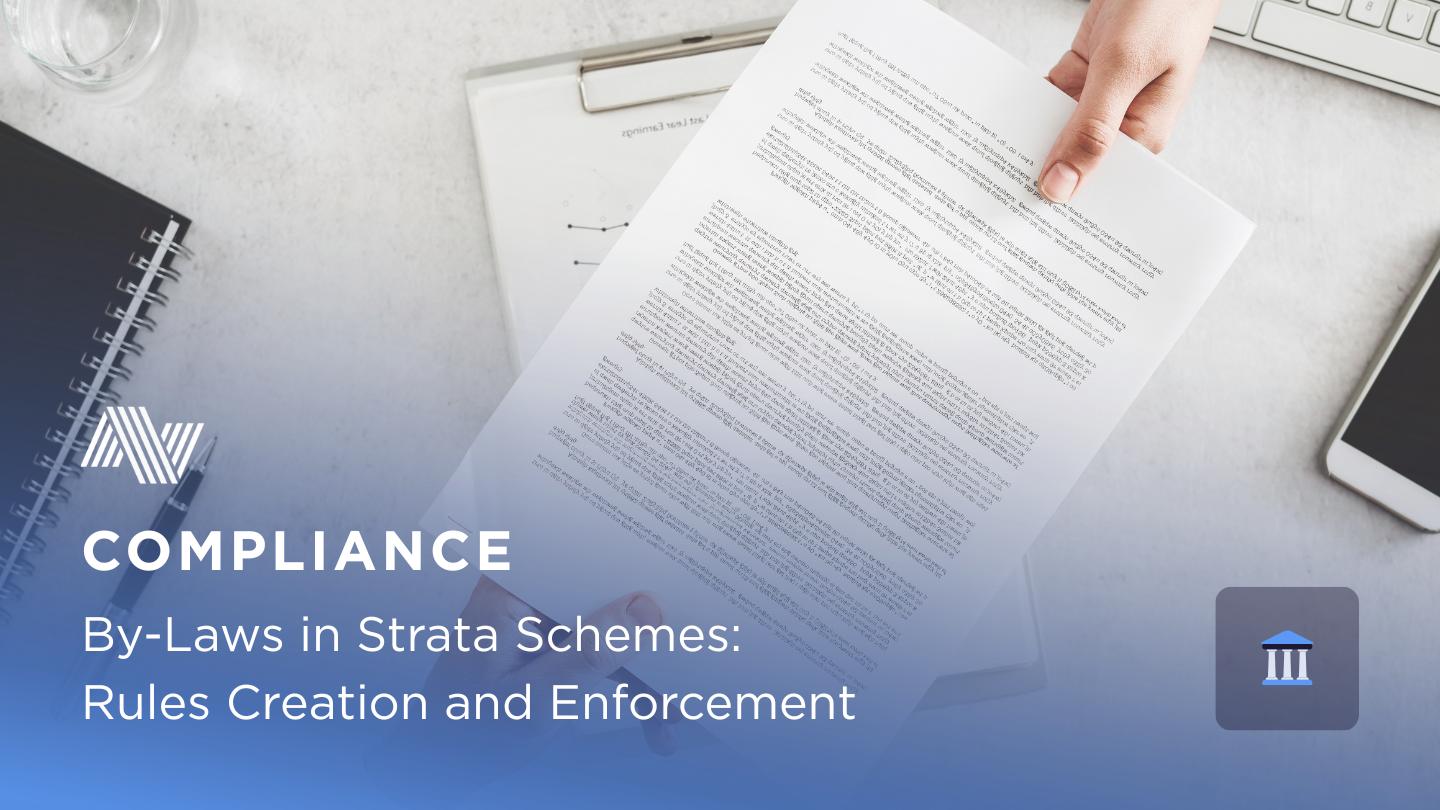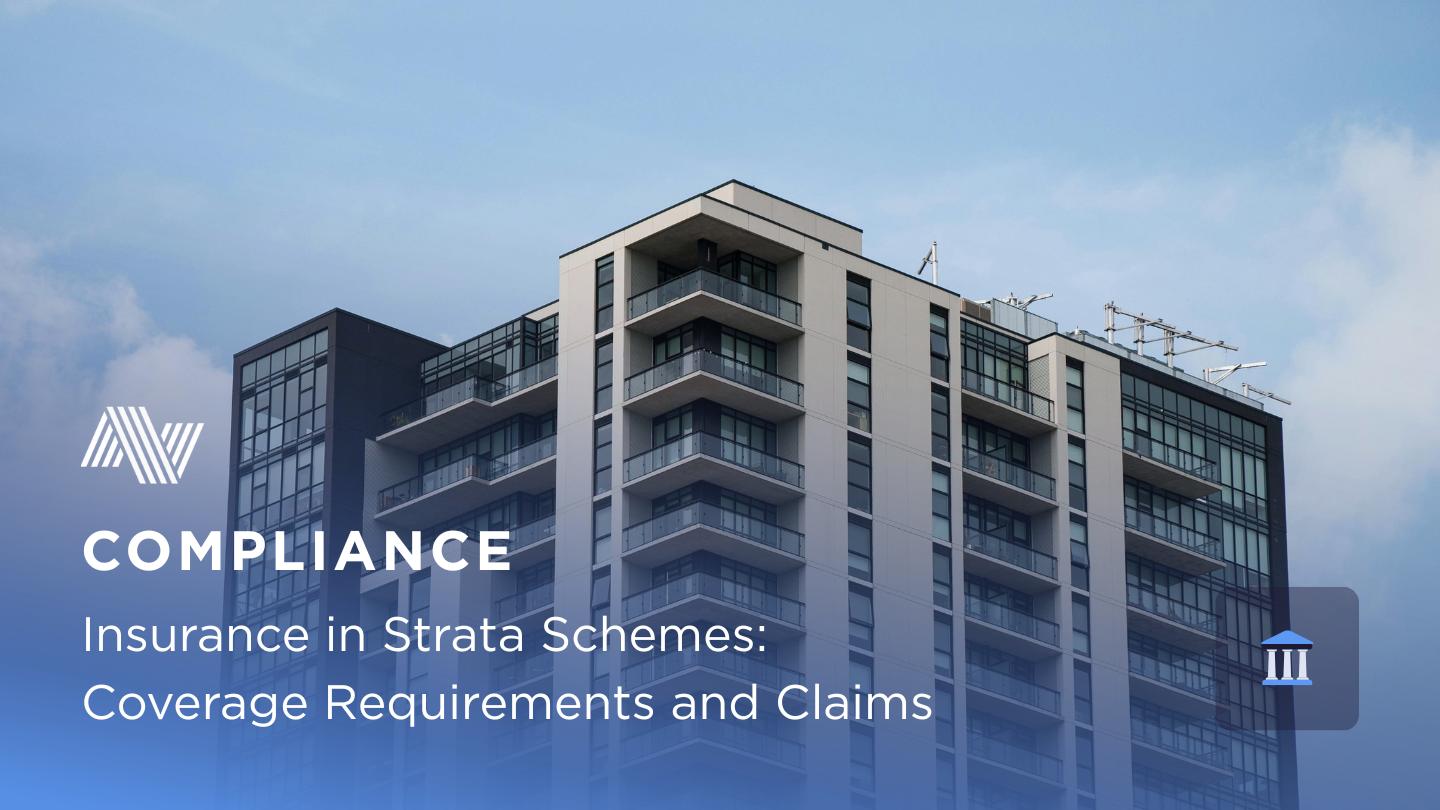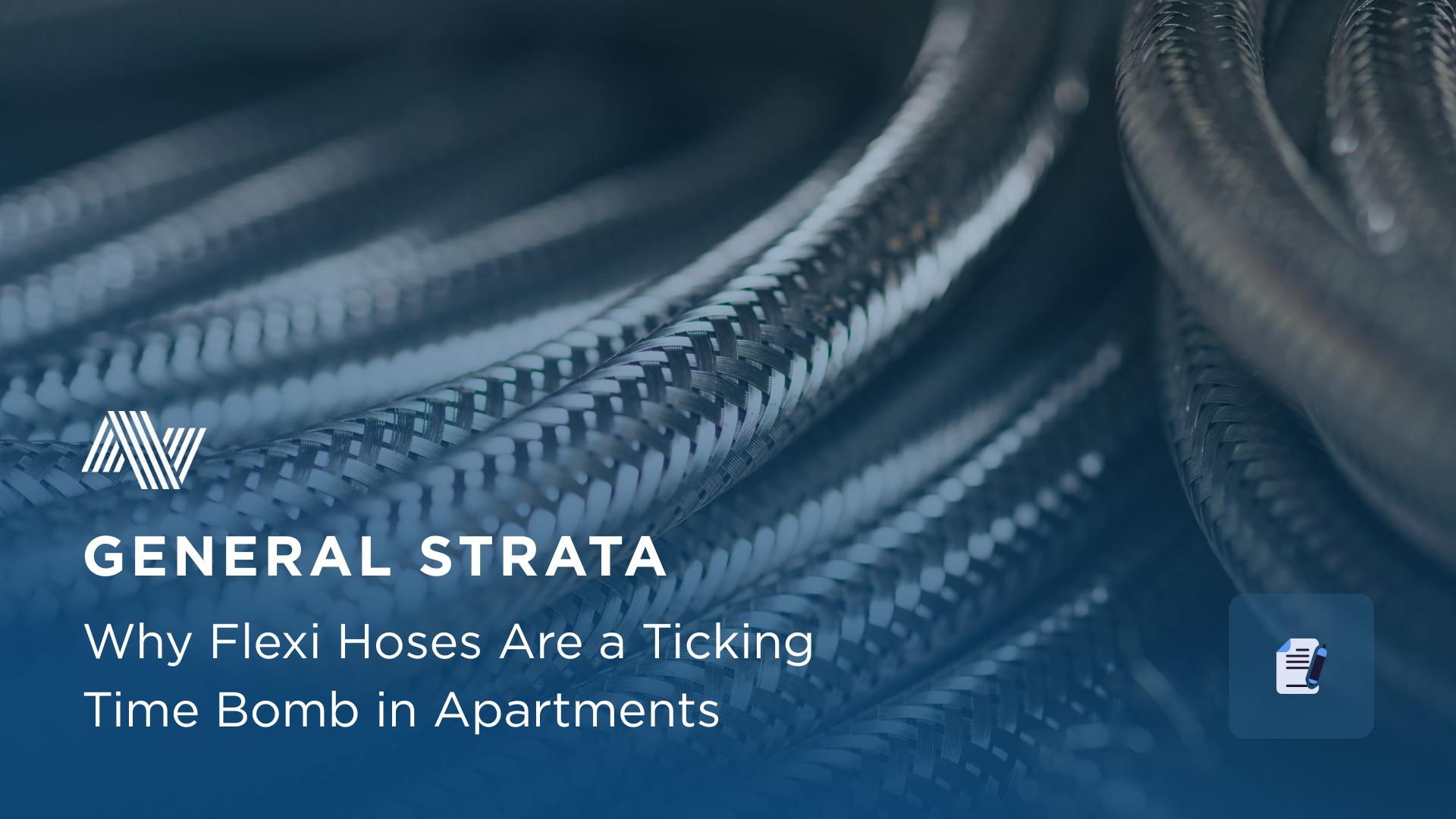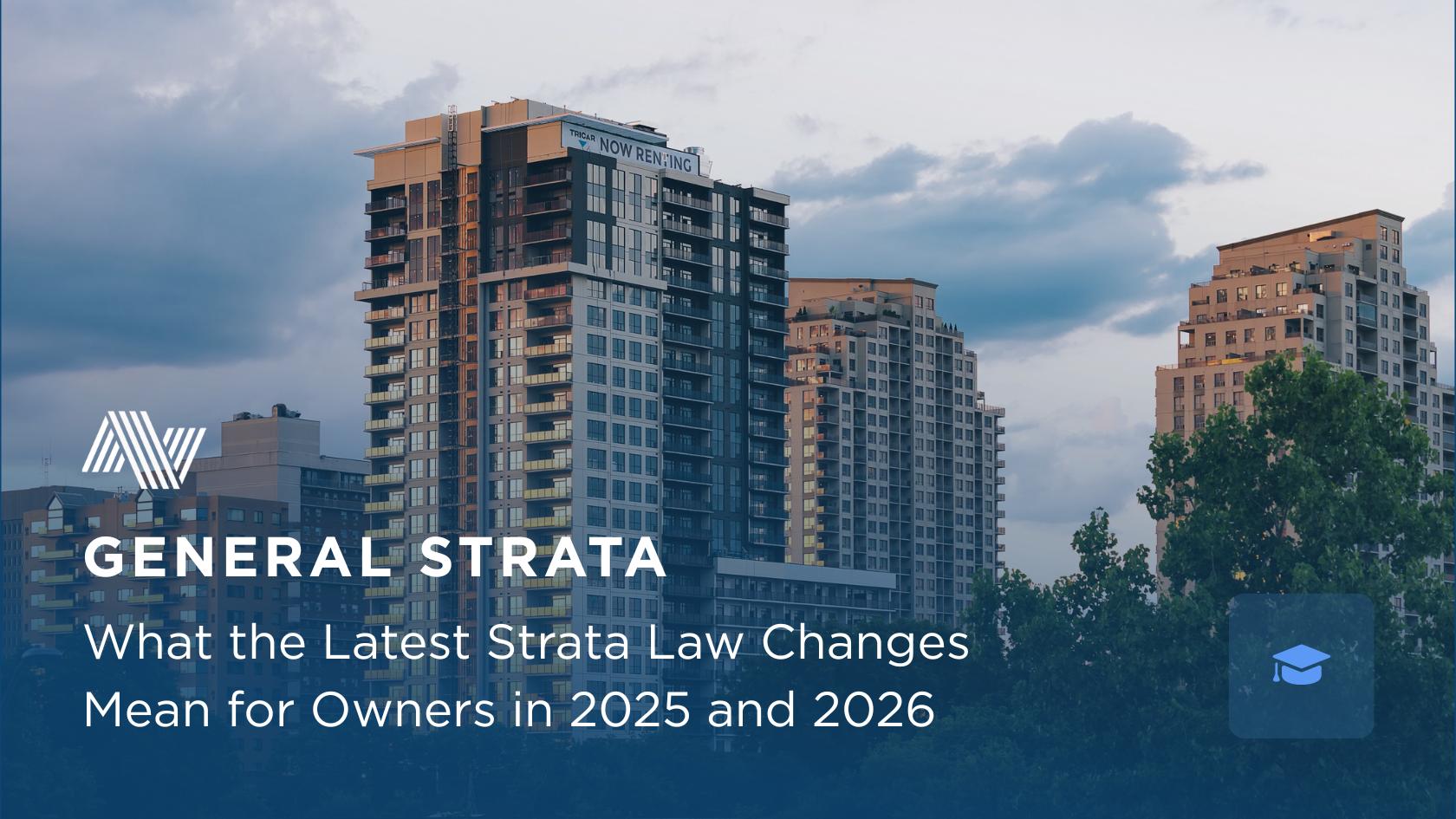Getting Started: An Intro to Compliance
Note: This article is intended as a general guide only, and should not be taken as legal or professional advice. It’s essential to consult with a qualified professional or seek advice from your managing agent if you have specific questions or concerns about strata living.


The One-Minute Guide to Compliance
If you only read one section, here are the key takeaways:
Disputes & Resolutions – Strata disputes should first be resolved internally, then through mediation, and finally via the NSW Civil and Administrative Tribunal (NCAT) if needed.
By-Laws – These are the rules of the scheme; owners, occupiers, and visitors must comply. Enforcement ensures fairness and harmony.
Strata Insurance – Mandatory for all NSW schemes; protects the building and common areas against damage or loss.
Stakeholders – Lot owners, committee members, strata managers, tenants, and prospective buyers all have roles and responsibilities in compliance.
Why It Matters – Understanding compliance safeguards property value, reduces conflict, and ensures legal protection.
Compliance is one of the most important parts of strata living in NSW. Unlike owning a free-standing home, strata ownership comes with shared legal obligations.
Getting compliance right doesn’t just help avoid penalties – it gives owners confidence, protects investments, and supports a harmonious community.
This article introduces three key compliance areas:
- Disputes & Resolution – how conflicts are resolved under NSW law.
- By-Laws – the rules that govern daily life in the scheme.
- Strata Insurance – mandatory cover that protects owners collectively.
By understanding these elements, you’ll know your rights, your responsibilities, and how to protect your investment.
Understanding The Dispute & Resolution Process
Disputes in strata schemes can arise from many issues – by-law breaches, noise complaints, parking disputes, pet ownership, or maintenance responsibilities.
The Strata Schemes Management Act 2015 (SSMA) sets out a clear process:
- Internal Resolution – attempt communication and negotiation within the scheme.
- Mediation – usually through NSW Fair Trading.
- Tribunal Order – if mediation fails, parties may apply to NCAT for a legally binding decision.
Who Needs to Know This?
- Lot Owners: Essential – disputes affect property value and living conditions.
- Committee Members: Critical – often responsible for initiating resolution processes.
- Strata Managers: Essential – can help coordinate mediation and guide compliance.
- Tenants: Helpful – disputes about noise, pets, or parking often involve tenants directly.
- Prospective Buyers: Useful – frequent disputes may indicate deeper governance or harmony issues.
TL;DR: Disputes follow a staged process: internal resolution → mediation → NCAT. Effective management protects relationships and property value.
Continue Reading? Explore more about strata disputes & resolutions.
By-Laws, Rules, and Enforcement in Strata Schemes
By-laws are the rules that regulate behaviour and activities within a strata scheme. They exist to maintain property value, protect owners’ rights, and create a harmonious living environment.
By-laws may be:
- Inherited from the developer.
- Amended or added by a special resolution of the Owners Corporation.
- Recommended by a strata manager or committee.
If breached, enforcement follows a legal process, which can include warnings, notices, and tribunal orders. Fair and consistent enforcement is essential for community trust.
Who Needs to Know This?
- Lot Owners: Essential – responsible for complying and voting on changes.
- Committee Members: Critical – enforce by-laws on behalf of the OC.
- Strata Managers: Essential – often advise on drafting, updating, and enforcing by-laws.
- Tenants: Essential – must comply with by-laws even though they are not owners.
- Prospective Buyers: Valuable – by-laws shape lifestyle (pets, parking, renovations).
TL;DR: By-laws govern behaviour and property use. They must be followed, enforced fairly, and updated when needed.
Continue Reading? Explore more about by-laws and how to enforce them.
Strata Insurance in NSW
Strata insurance is mandatory under the Strata Schemes Management Act 2015. It protects the Owners Corporation against financial losses from damage to the building and common property.
Typical cover includes:
- Fire, storm, and natural disasters.
- Vandalism and malicious damage.
- Accidental structural damage.
- Public liability for injuries on common property.
Without strata insurance, owners would face significant personal financial risk. Ensuring the scheme is adequately insured is one of the OC’s most important responsibilities.
Who Needs to Know This?
- Lot Owners: Essential – you fund insurance through levies and benefit from protection.
- Committee Members: Critical – must ensure correct cover is in place.
- Strata Managers: Essential – often arrange and manage insurance policies.
- Tenants: Helpful – while building insurance protects common property, tenants should have contents insurance.
- Prospective Buyers: Valuable – insurance adequacy signals financial health and responsible management.
TL;DR: Strata insurance is compulsory in NSW and protects all owners by covering building damage and liability risks.
Continue Reading? Explore more about strata insurance.
Why Compliance Matters
Compliance ensures your scheme runs smoothly, remains financially protected, and avoids costly disputes.
For owners, tenants, and buyers alike, it means:
- Fewer conflicts and faster resolutions.
- Clear rules that protect property value.
- Legal protection in case of emergencies.
TL;DR: Compliance is the backbone of a safe, harmonious, and legally protected strata community. At its core, compliance is about protecting people, property, and peace of mind.
Common Pitfalls in Compliance
Avoid these mistakes that often cause issues in strata schemes:
- Ignoring internal resolution – jumping straight to NCAT without first trying communication or mediation can waste time and money.
- Inconsistent by-law enforcement – failing to apply rules fairly leads to conflict and resentment.
- Underinsuring the scheme – not reviewing cover regularly can leave owners financially exposed.
- Overlooking tenant obligations – assuming only owners are responsible often results in repeated breaches.
For personalised advice, contact Netstrata – your partner in navigating strata compliance.
Related Files













